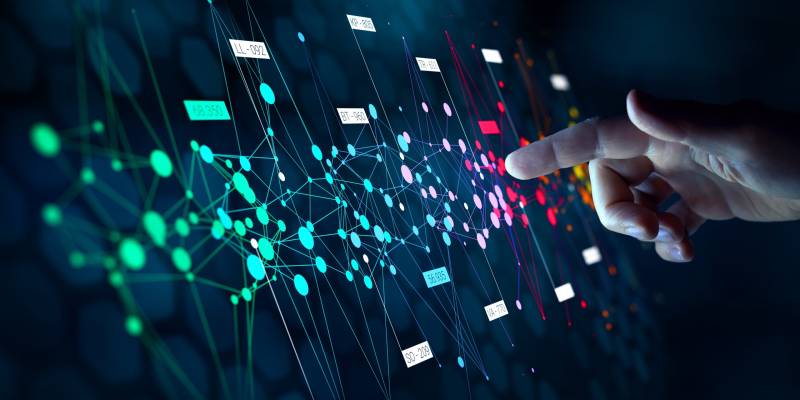What would happen if we loosened our attachment to our labels?
When I was 32 years old, I finally took the leap into social media. I signed in to MySpace and began setting up my page. It felt like a weird thing to do — not very many of my friends were on social media at the time — but there was also something novel and fun about it. It was like walking into an empty room and decorating it exactly how I wanted, in preparation for inviting my friends to join me for a cup of virtual tea.
I chose the background I wanted, carefully penned my blurbs, painstakingly chose my quote, and agonized over what song would play when people visited my profile. (Remember that? Yeah, it played a song.)
When I was done, I couldn’t believe how satisfied I felt. It was just a dumb webpage that very few people would ever see, and yet it felt like I’d achieved something important. What, exactly, was that, I wondered?
After checking my own page several times over the next week and marveling at how well it described me, I realized what it was that was lighting up my brain’s pleasure centers so much. I’d been asked to define myself as specifically as possible: in terms of color schemes, fonts, backgrounds, photos, quotes, and music. This newfangled thing called MySpace had asked me to recreate myself in the form of a page in a social media platform — and I’d succeeded. Even a stranger who visited the page would understand, in just a moment, what my values were, what I believed in, what my style was, and how I wanted to be seen by others.
It was like I’d created a new version of myself: my digital self. And that version could be anything I wanted, and there for all the world to see.
When I was in my twenties, I used to listen to lectures by spiritual leaders while I was out taking walks. One of my favorite speakers was Caroline Myss, Ph.D. If you aren’t familiar with her work, she calls herself a “medical intuitive,” which basically means someone who can psychically (for lack of a better term) “see” a person’s illnesses and medical issues. She has also written extensively about the human spiritual journey through the lens of mysticism, energetic centers (like the chakras), and archetypes.
Back then, she often brought up how odd she found it that so many people wore crucifixes around their necks. It wasn’t a religious objection — she is Catholic, after all. Rather, her curiosity centered around the idea that one needed to broadcast their religion to everyone around them by wearing this piece of jewelry.
Myss suggested that when we “wear” our identity (religious jewelry, political t-shirts, etc.), we are attempting to control the power dynamics of the people around us. Our “identity signals” make it very clear, just like a MySpace page, exactly who we are, what we believe, and what we value — information that typically would take some time to extract in conversation without the presence of such evidence.
When we put our identity on display, it changes social power dynamics. It decreases relational curiosity and delineates lines in the sand. “These are my values. This is what drives me. If you want to be in my circle, you must understand that everything will revolve around this.”
As the social media era unfolded, Myss’s words made more and more sense to me. I saw it in my own behavior.
I’d painstakingly consider how to present myself on the profile pages of each of these platforms, and then spend an inordinate amount of creative energy trying to make each update reflect exactly who I am right now — or perhaps exactly what I wanted the outside world to perceive about me. How would I curate the best photos? How would I hashtag them? How happy, skinny, and successful could I make myself look? What values and political agendas could I advertise and how deeply could I align myself with them?
It took a long time for me to ask myself an even more important question: Why did I feel the need to do any of this?
Ifwe aren’t already wearing our identity in the form of a t-shirt, necklace, or some other indicator, how soon do we announce our identity in a conversation with someone we just met? How soon do we let them know we are a proud parent? A die-hard vegan? A Trump supporter? A devoted Christian? A pansexual, polyamorous yogi? A patriot? A protestor?
If you pay attention, you’ll notice that most of these identity indicators specifically relate to values, political agendas, religious beliefs, and lifestyle choices. You know — the things that make us feel the most defined, the most like ourselves. And the things we hold on to with the tightest grip, the things we wish we could get everyone to agree upon so the world would feel a little safer.
It’s rare that we lead with identifying markers like “avid hiker,” “knitting addict,” or “passionate gardener.” It might come up, sure, but these are the low stakes labels. These kinds of labels don’t hold enough power or social clout to help us manage (manipulate?) our little corner of the world.
We know what parts of our identity have the most power — and we know to pull them out and use them right away. We know that this directs the conversation, manipulates the flow of power, influences how we bond with others, and even forwards our subconscious agendas.
More than ten years after I designed my MySpace page, the whole world has changed. Identity is everything now, no matter where you are.
Thanks to all our various, character-limited bios across multiple platforms, we all know how to describe ourselves in just three words.
- Mother, wife, entrepreneur.
- Vegan, femme, bi.
- Conservative, patriot, Christian.
Did you ever wonder what would happen if we took away all these markers? What would happen if it took a conversation or two for someone to find out that you had children? Were in a heterosexual marriage? Worshipped Jesus? Considered meat-eating immoral?
Would it be uncomfortable — threatening, even — for people to have to get to know us better before they knew our family situation? Our sexuality? Our religious and political beliefs? Our dietary values? And if so, why?
What would happen if we developed a friendship bond with someone before we knew all their labels? What would happen if we were more interested in relational curiosity than in using our identity markers to manipulate how we connect in ways that maintain our feelings of control and power? What would happen if we grew to like one another before realizing that our values didn’t perfectly align in the ways that felt safe to us?
Truthfully, I don’t know how to navigate this world without labels, anymore. For better or worse, labels efficiently allow us to be seen in spaces in which we want to be seen (job searches, for instance, or dating apps). Labels give us access to the spaces into which we want to explore. And in some cases, labels help us define, protect, and uplift marginalized groups of people.
It’s not practical to drop all labels or throw away all our identity markers. But what would it be like to learn to loosen our grip on them? To let them hold a little less sway?
Isn’t it true, after all, that we, as people, are infinitely more fascinating to get to know and explore than a painstakingly designed, perfectly curated social media profile page?




